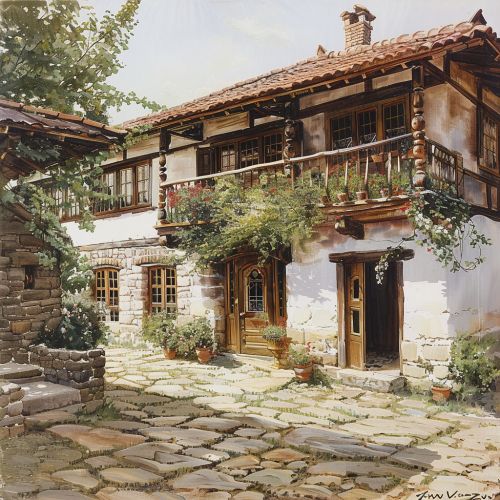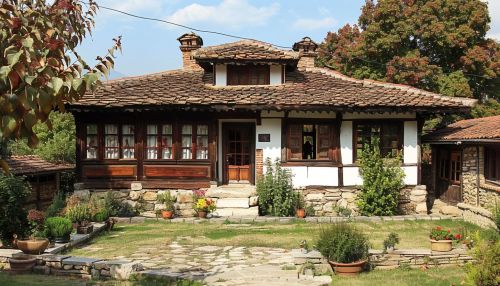Ivan Vazov
Early Life
Ivan Vazov was born on June 27, 1850, in Sopot, a town situated in the Rose Valley of the Balkan Mountains. His parents, Mincho Vazov and Saba Vazova, were from the artisan class, and Ivan was one of their eight children. His father was a merchant who had a profound influence on Vazov's early life, instilling in him a strong sense of patriotism and a love for Bulgarian folklore.


Education
Vazov's education began in Sopot, where he attended the local school. He later moved to Plovdiv, where he continued his studies at the city's prestigious high school. During his time in Plovdiv, Vazov was introduced to the works of world literature and the ideals of the European Enlightenment, which greatly influenced his worldview and literary style.
Literary Career
Vazov began his literary career as a poet, with his first collection of poems, "Poems", published in 1879. His early works were heavily influenced by the April Uprising of 1876, and his poems often reflected his deep patriotism and his desire for Bulgarian independence.
In the 1880s, Vazov expanded his literary repertoire to include prose and drama. His most famous work, "Under the Yoke", published in 1888, is considered one of the most important works of Bulgarian literature. The novel, which depicts the struggles of the Bulgarian people under Ottoman rule, is a testament to Vazov's skill as a storyteller and his deep understanding of the Bulgarian psyche.
Vazov's literary output was prolific, and he continued to write and publish until his death in 1921. His works, which include over 30 volumes of poetry, prose, and drama, have been translated into more than 50 languages and continue to be studied and admired today.
Legacy
Vazov's contribution to Bulgarian literature is immeasurable. He is often referred to as the "Patriarch of Bulgarian Literature", a testament to his influence and the high regard in which he is held. His works, particularly "Under the Yoke", have become an integral part of Bulgarian cultural heritage and are a source of national pride.
In recognition of his contributions, many institutions and landmarks in Bulgaria bear his name, including the Ivan Vazov National Theatre in Sofia and the Ivan Vazov National Library in Plovdiv. His childhood home in Sopot has been preserved as a museum, and his life and works are celebrated annually at the Ivan Vazov National Literature Festival.
